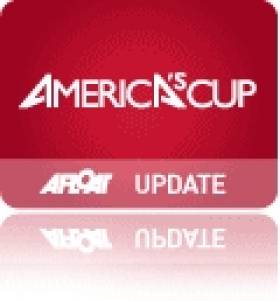Displaying items by tag: Royal Yacht Squadron Racing
Ben Ainslie's British Challenge Accepted for the 35th America's Cup
The British Royal Yacht Squadron Racing (RYSR) has had its challenge accepted by the America's Cup defender, the Golden Gate Yacht Club of San Francisco. RYSR is the affiliate club of the Royal Yacht Squadron and the challenging club for Ben Ainslie Racing (BAR), now the official British entry for the 35th America's Cup in 2017.
The Golden Gate Yacht Club (GGYC), having won the 34th America's Cup, holds the America's Cup in accordance with the terms of a Deed of Gift dated 24 October 1887 and will be hosting the event in three years' time, although the location is yet to be confirmed, being either San Diego or Bermuda.
RYSR submitted its Notice of Challenge to the GGYC during the two-month open entry period which closed on Friday 8th August. The entry has now been formally accepted.
Each team that challenges for the America's Cup is required to do so through a host club. The America's Cup started its long history at the Royal Yacht Squadron when the schooner America beat a fleet of British racing yachts to the finish line there on 22 August 1851, watched by Queen Victoria.
"We are delighted that Ben Ainslie Racing, led by Sir Ben, has asked Royal Yacht Squadron Racing to challenge on his behalf and are sure that, if anyone can bring the Cup back to its original home, he and his excellent BAR team can," commented Simon van der Byl, CEO of RYSR.
























































